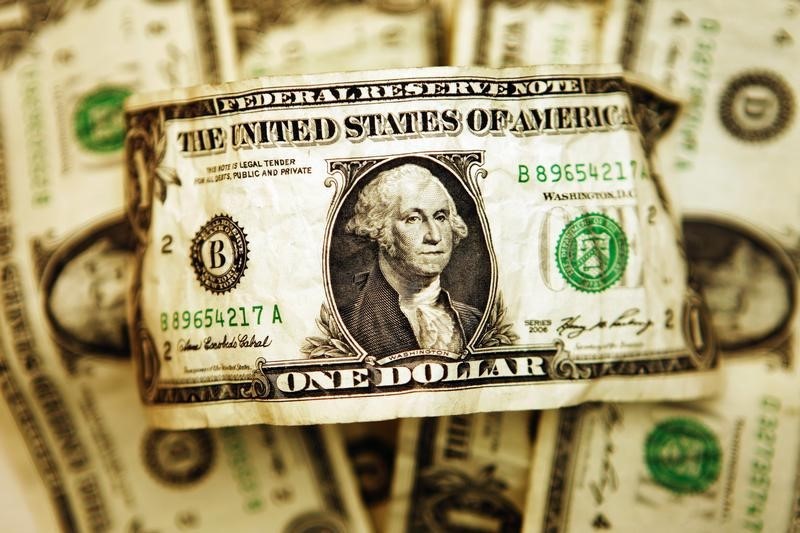Investing.com – The dollar weakened in early European trading Friday, sticking to narrow ranges as traders turn their attention onto next week’s Federal Reserve meeting following the conclusion of the European Central Bank get-together.
At 2:55 AM ET (0755 GMT), the Dollar Index, which tracks the greenback against a basket of six other currencies, was 0.2% lower at 91.155, remaining just above the seven-week low of 90.856 seen on Tuesday.
USD/JPY was flat at 107.95, the risk-sensitive AUD/USD rose 0.3% to 0.7728, while EUR/USD traded up 0.1% at 1.2024, recovering after minor falls Thursday on the conclusion of the ECB meeting.
The European Central Bank maintained its very accommodative policies at its latest meeting Thursday, and President Christine Lagarde shut down expectations that the central bank will start to consider tapering its bond purchases even while predicting a robust recovery for the region in the second half of the year.
“The focus now turns to the expected improvement in Eurozone data, which should help to push the undervalued EUR/USD higher this quarter,” said analysts at ING, in a note.
Some of this data is due later Friday, with French and German PMI numbers for April expected to show improving sentiment throughout the region.
Also of interest will be the Federal Reserve meeting next week, with the U.S. central bank expected to keep its current policy largely unchanged on April 28.
Investors will be looking more for any comments about scaling back monetary easing in the future from Fed Chairman Jerome Powell, although he is likely to take a leaf out of Lagarde’s playbook and warn against expecting the tapering of bond purchases anytime soon.
Elsewhere, GBP/USD rose 0.2% to 1.3858, helped by evidence of a recovery in the U.K. economy.
U.K. retail sales surged more than expected to levels higher than before the coronavirus pandemic struck, even with most shops still closed, rising 5.4% in March from the month before, double the gain of the previous month.
Britain also recorded a 28 billion-pound ($39 billion) budget deficit in March, a shortfall for 2020-21 as a whole of 303.1 billion pounds, the largest budget deficit in peacetime history. As large as this figure is, it’s still smaller than the 327.4 billion pounds predicted by the Office for Budget Responsibility last month.
USD/RUB fell 1.7% to 75.352, as Russia started to pull its troops back from the Ukrainian border, reducing the apparent likelihood of a fresh invasion of its western neighbor. Russia’s central bank is also set to meet later Friday, and many analysts expect it to raise its key interest rate to try and restrain rising inflation
Russia’s consumer price index rose 5.8% in March in year-on-year terms, its highest reading in nearly five years, something that President Vladimir Putin touched on in his annual address to the nation on Wednesday.
This article was written by Peter Nurse from Investing.com.


